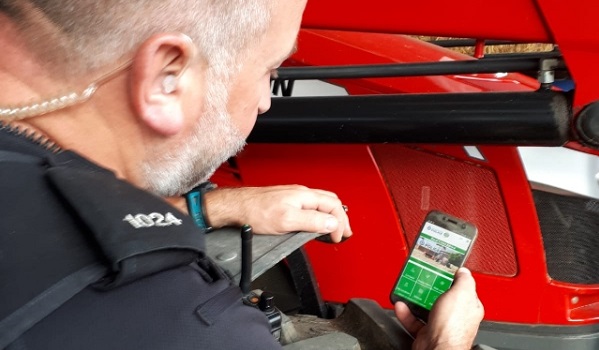Watch this space
CCTV has proved to be an outstanding investigative tool, but forces need to be aware of the data protection implications when images are used as evidence, says David Mackay.

Forget the claims and counter claims about whether CCTV works – it is undoubtedly a vital technical component of modern policing. For example, in Glasgow, more than 1,100 arrests were directly assisted by public space CCTV in the first half of 2004. This does not include many others that were achieved by follow-up review of recorded material. Similar success can be found throughout the UK.
Despite such spectacular results CCTV needs to be viewed as a tool, not a magic wand. Although it has been shown to reduce some categories of offending, it will not always cut crime and disorder.
In fact, it leads to increases in reported crime by observing and reporting incidents that would not have been previously reported. But even this anomaly is working to assist public safety by enabling police to respond to these previously unreported incidents, and reinforce the concept of reassurance policing.
The police service can use public space CCTV to monitor hotspots, respond to incident reports and control large events, but above all, the cameras record information for later review. This is their main benefit to policing – the archive ability represents a major advance in the retrospective investigation of crime and, according to ACPO, has saved thousands of hours of investigative time.
CCTV technology does have its limitations. For example, cameras do not have the same technical capability as sports broadcast equipment in that they cannot follow the ball. Despite criticisms of image quality, public space CCTV is not installed in a haphazard fashion. Every camera has a specified purpose. If this is to observe a car park or busy street, it can also focus on every individual in the scene and produce identification quality images.
Image quality is a much-debated topic but the only time that the police release poor quality images is when they do not have good ones or better evidence. This seldom occurs, as the overwhelming majority of CCTV evidence is good.
Public control
Town centre CCTV is not a police-owned asset. In most instances, it is operated by a community-based CCTV trust or by the local authority. But the police are undoubtedly the principal beneficiaries of the camera networks and, as a consequence, excellent working relationships have been developed between forces and the operators. This relationship is based on legal requirements, firstly on the handling of evidence and secondly on the implications of PACE, RIPA, DPA and HRA. This is the most important factor that underpins public space CCTV as an effective weapon for police purposes.
Technological advances
As the use of public space CCTV has grown, so has the complexity of individual systems. Most schemes started out with a score or so cameras, but today the average CCTV control room has to manage upwards of 50 to 200 cameras. This growth in volume has brought an unwelcome administrative task in the length of time now taken to administer the VHS tapes. Yet this is a vital task as the production of properly documented evidential tapes is crucial to police purposes. The time taken to search such multi-camera systems for incidents and supporting activity is protracted. Therefore, many systems are now moving to digital recording and storage. The original reason for this move was to reduce costs, but the additional technological benefits of digital systems are too valuable to ignore.
The move to digital technology created a lot of unnecessary confusion about its suitability as evidence. In reality, the only problem associated with using digital images as evidence is whether the court has the equipment required to view the recordings.
Code of conduct
The Information Commissioner has stated that “widespread acceptance of CCTV in the UK is a prize to be cherished. Once we have lost public confidence, it will be very difficult to regain it.” The operating organisation must implement proper safeguards and procedures or face the possibility of legal sanctions, both criminal and civil. Cla



